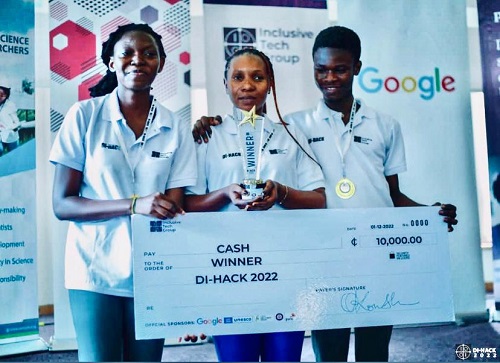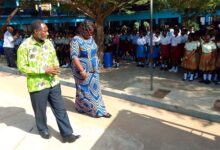
Nine groups of Persons Living With Disability (PWD) from across the country seeking financial support to develop their innovative ideas into marketable and profitable techno startup, on Thursday in Accra pitched their business ideas before judges, made up of industrial experts and investors, at the second edition of Disability Inclusive Hackathon (Di- Hack).
The three-day programme organised by Inclusive Tech Group with support from Google Ghana was held on the theme: “Independent Living for Persons with Disabilities- The Role of Technology.”
The groups developed mobile application solutions, devices and other digital platforms to provide varied services to clientele and PWDs as their business modules in making life easier for the physically challenged.
At the end of the pitch session, Team Ora Tech, developers of a device which enabled deaf persons to make and receive phone calls by translating sign language into text and text into voice emerged the winner and was presented with an award of a trophy, a cash of GH¢10,000, medal, certificate of participation and months of mentorship to sharpen their skills.
Tech-Work, an automated wheelchair innovators who provided solutions for those with mobility challenges were second. This wheelchair could move by itself and be operated with a remote or a joystick, while Azubi, creators of an e-commerce shopping app, that enabled the blind and the deaf to shop online took the third position.
Speaking in an interview with the Ghanaian Times after the programme, the Executive Director of Inclusive Tech Group, Dr Millicent Agangiba, explained that the Programme was to get more PWDs involved in the tech space while developing their lives to compete equally with those without any deformity.
The hackathon, she said also sought to create greater awareness among technocrats on the needs of PWDs, foster social inclusion and set young people on the path of entrepreneurship while promoting the development of local assistive technologies.
Dr Agangiba indicated that DI-Hack was initiated on the back of findings from a four-year long empirical research conducted to seek and enhance digital accessibility for PWDs in the country.
“The research showed that the involvement of PWDs in the development of assistive technologies and devices yields better accessible products. To this end, technocrats co-creating solutions with PWDs will result in accessible and workable solutions,” she added.
Dr Augustina Naami, the Head of Department of the Social Work at the University of Ghana, who was also a judge commended the organisers for involving the PWDs in nation building.
She said such assistance would go a long way to help and enhance the talents of PWDs to erase any erroneous notion of disability since their ability could be harnessed
BY JOYCELINE NATALLY CUDJOE






